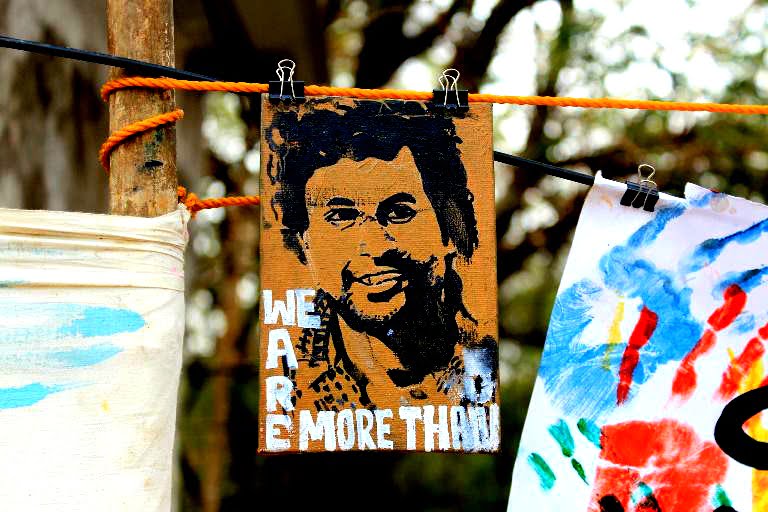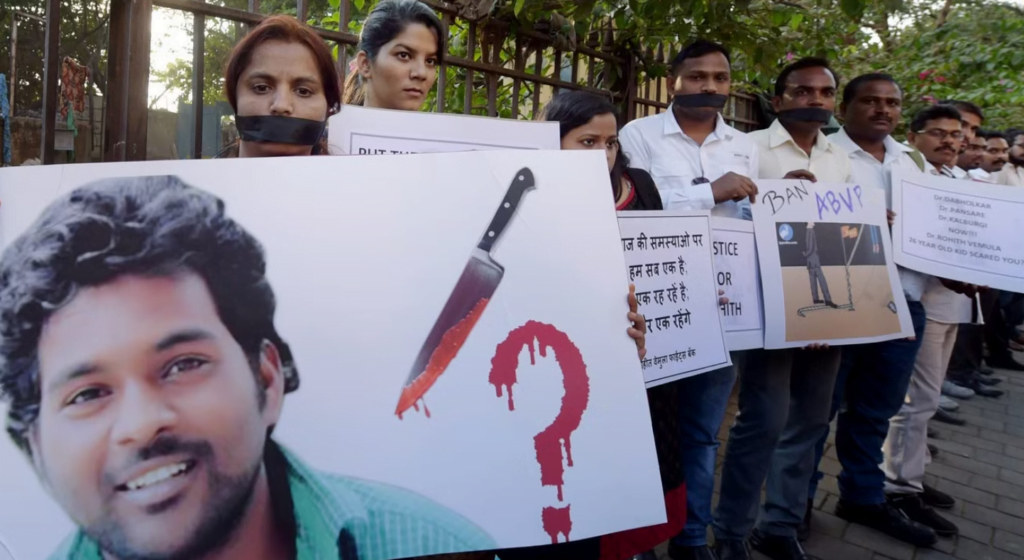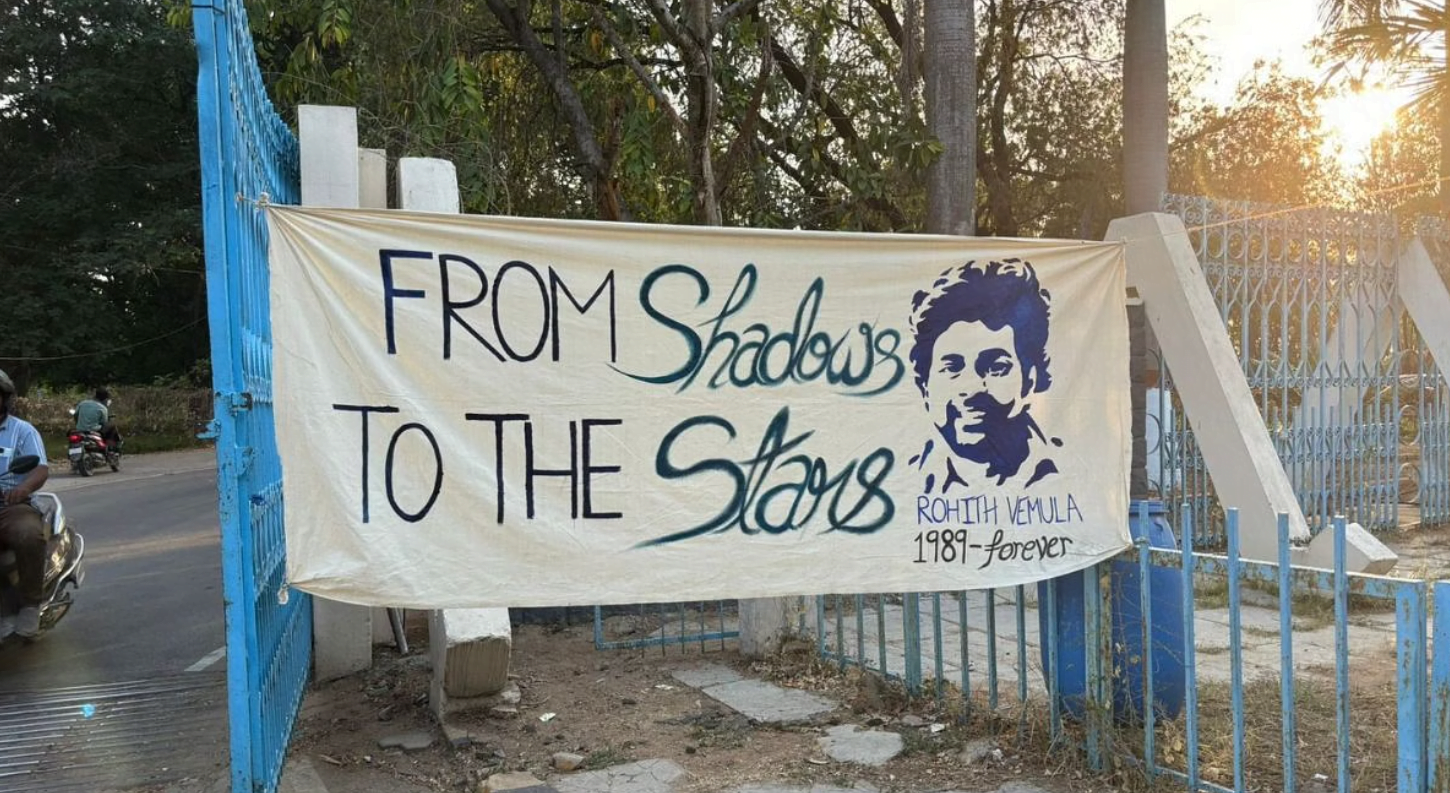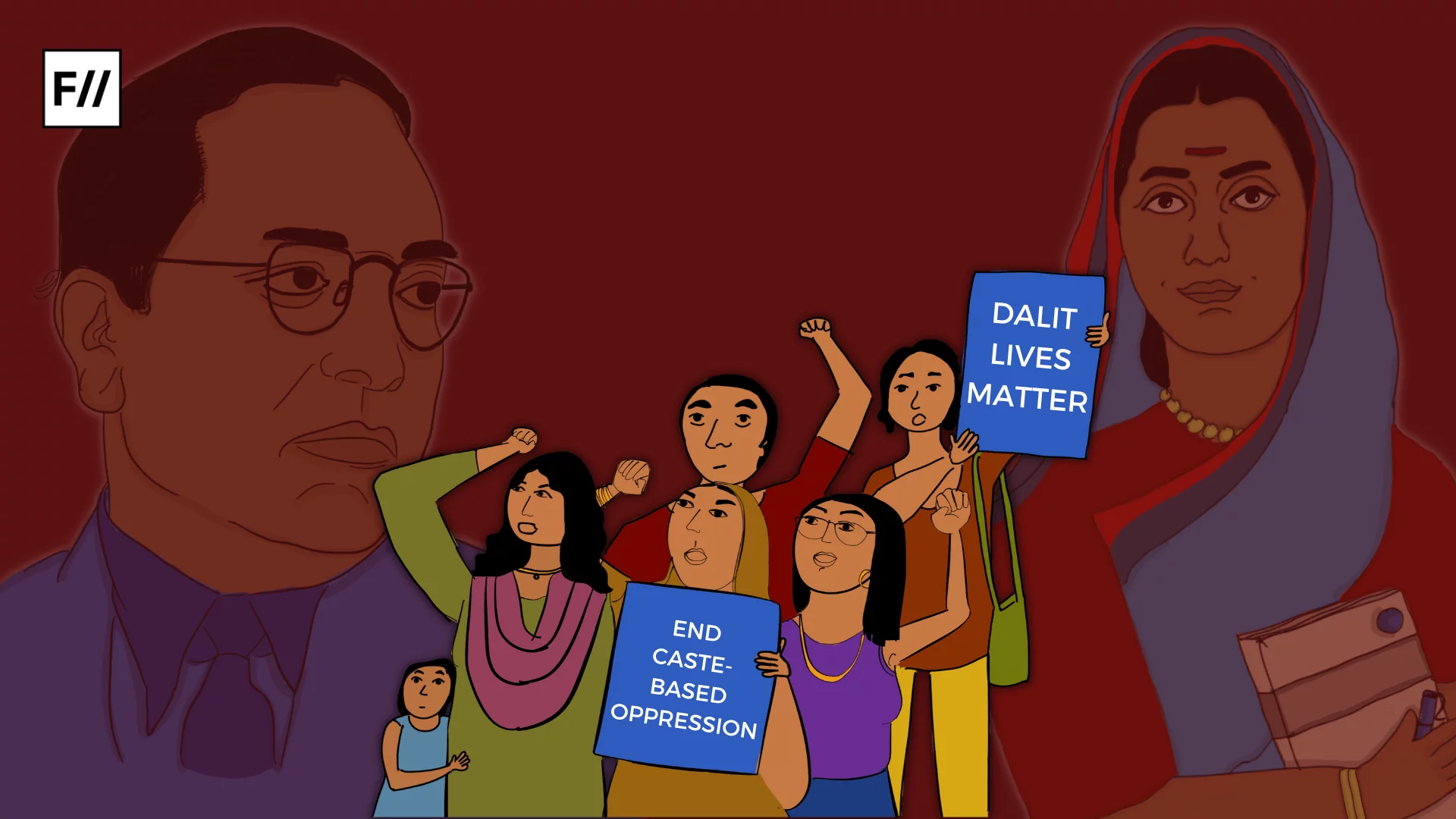In their closing report, Telangana’s investigating officers have made a conjectural and derogatory comment on Rohith’s life. They claim that his fear of possessing a forged caste certificate was the reason behind his suicidal attempt. In addition to denying Rohith dignity even after his death, these accounts that misrepresent his Dalit status also make jest of the experiences that he, Radhika Vemula, and Raja Vemula shared collectively.
Along with Union Minister for Women and Child Development Smriti Irani and leaders of the Akhil Bharatiya Vidyarthi Parishad (ABVP), the closure report also cleared the accused, including then-MP of Secunderabad Bandaru Dattatreya, MLC N. Ramchander Rao, and Vice Chancellor Appa Rao of the University of Hyderabad.
For the Vemula family, the latest closure report in the case feels like a terrible twist of the knife. They are still in shock over his death, and on top of that, they have to deal with the disgrace of having their caste identification called into doubt and having their claims examined.
Vemula’s caste is being singled out for so much attention that it is distracting from the real problem, which is the institutional shortcomings and political manoeuvring that may have played a role in his terrible demise. Those in positions of authority, such as BJP leaders and the university administration, who were accused of harassment and discrimination, are cleared in this study.
Instead of doing a full examination of the circumstances surrounding Vemula’s suicide, the study focuses on discrediting his family’s story. This only heightens the sense of injustice. Imagine the emotional toll of losing a kid and then being labelled as liars by the very system that is supposed to be pursuing the truth. The call for a reinvestigation is about more than simply bringing closure to the Vemula family; it is also about ensuring accountability and preventing future catastrophes. Vemula’s narrative became a symbol of the difficulties encountered by Dalit students in higher education. A sloppy inquiry gives little confidence that these issues are being treated seriously.
The Vemula family met Telangana Chief Minister Revanth Reddy and Congress officials in Hyderabad the day after the Telangana Police closure report concluded that Rohith, a PhD student at the University of Hyderabad, killed himself out of fear that his “real caste identity” would be discovered. They then held a press conference and went to the university to witness a protest. With a stern voice, Raja remarked, “They keep trying to kill Rohith anna. Yet we remain hopeful that this administration will fulfil its pledges. Numerous statements are made by visitors. However, we support the Congress and Rahul Gandhi.”
A quest for justice and identity
A widely reported episode involving the Rohith Vemula case sparked a national dialogue on institutional shortcomings, caste prejudice, and the ongoing struggle for equal chances in higher education. The Rohith Vemula case serves as a sobering reminder of India’s enduring problems with institutional inequality and caste discrimination. His narrative has turned into a call to action for social justice, obliging educational establishments to work toward a more just and inclusive setting where all students, regardless of caste, are given a chance and dignity. The legacy of Vemula continues to motivate movements aiming to create a more fair and just society in India.

A proposed law called the Rohith Act seeks to solve institutional caste discrimination and caste prejudices by preventing caste discrimination. Under the act, discrimination based on caste in educational institutions would be illegal. This would give Dalit students who are discriminated against legal remedies.
Regardless of caste, the act may require actions to provide equal opportunity for all students. This could include anti-discrimination training for teachers and staff, mentorship initiatives, and scholarship provisions. The act might create a more effective mechanism for handling complaints from students about caste discrimination. Students would have a safe place to report events and request prompt action.
Who was Rohith Vemula and what led to his tragic death?
Vemula was born on January 30, 1989, in Guntur, Andhra Pradesh, to Manikumar Vemula and Radhika Vemula. His father belongs to the Vaddera caste, which is categorised as an Other Backward Class (OBC) in India’s reservation system, while his mother was born into the Mala group, which is a Scheduled Caste, but was adopted by a Vaddera family. It is claimed that Radhika was treated differently from the rest of her adoptive family due to her caste.

Rohith’s friends became aware of his pain at witnessing his mother being humiliated and treated as inferior. His political efforts, based on his and his mother’s experiences, indicated that he identified as a Dalit and was pushing for Dalit rights. But a District Level Scrutiny Committee that investigated the family’s caste classification determined that Rohith and his mother were “not Dalits” but rather belonged to the OBC category.
The Ambedkar Students Association (ASA) claims to have held a seminar or public gathering in early August 2015 to discuss the death penalty for Yakub Memon, a convict in the 1993 Bombay bombings. However, AVBP claims, “Vemula and four ASA members held a funeral prayer.” The ASA also condemned the ABVP’s protest against the screening of the documentary Muzaffarnagar Baaqi Hai at Delhi University. On August 3, 2015, he and other ASA activists protested at the Hyderabad campus. Nandanam Susheel Kumar, the president of the ABVP’s university section, responded by calling them “goons” on Facebook.
The next day, Kumar was rushed to the hospital and operated on for acute appendicitis, however, he alleged that he was “roughed up by around 40 ASA members who barged into his room.” An anonymous member of the Ambedkar Students Association (ASA) accused a university student, Susheel saying, “When we confronted Susheel in his hostel room, he tendered a written apology in the presence of the university’s security officer. But the next day he got himself admitted to a hospital and alleged that members of ASA had manhandled him. The university ordered an inquiry while ABVP lodged a police complaint.”
The university ordered an inquiry, and the ABVP lodged a police complaint. The ABVP wrote to BJP MP from Secunderabad and Union Minister Dattatreya, alleging that ASA members were engaging in ‘casteist,’ and ‘anti-national,’ activities. Dattatreya forwarded the letter to Union HRD Minister Smriti Irani, who stated that ABVP or BJP had nothing to do with the incident. The letter was forwarded to the university’s Vice-Chancellor Professor P. Appa Rao. In response, the college expelled Vemula from his hostel along with four other members of the ASA, while Kumar was warned.
Five students were suspended in September 2015, leading to financial struggles and a “relay hunger protest” on January 3, 2016. After the suspension was confirmed, the students moved out of their hostel rooms and set up tents inside the campus.
On January 17, 2016, Vemula died by suicide, hanging himself with an ASA banner, blaming the “system” for his death. He was staying in Umma Anna’s room after being expelled from the hostel by the University of Hyderabad authorities.
The Rohith Vemula case may be closed on paper, but the fight for justice continues. An exhaustive inquiry, an end to caste prejudice, and a more open future for Indian education are all necessary given his legacy.
“Maybe I was wrong, all the while, in understanding world. In understanding love, pain, life, and death. There was no urgency. But I always was rushing. Desperate to start a life. All the while, some people, for them, life itself is a curse. My birth is my fatal accident. I can never recover from my childhood loneliness. The unappreciated child from my past.”
This was his last words.
Even with no resolution, the narrative of Rohith Vemula persists in motivating movements in India that strive for social justice and equal access to education. His story serves as a sobering reminder of the difficulties marginalised populations confront and the ongoing work required to end caste discrimination and build a more just and equal society.
The Rohith Vemula case may be closed on paper, but the fight for justice continues. An exhaustive inquiry, an end to caste prejudice, and a more open future for Indian education are all necessary given his legacy.
About the author(s)
Sumaiya Sayeed is an adaptable independent writer and translator (subtitler) who has a love for creating engaging content for a range of markets. Sumaiya is a freelance writer with a background in Communicative English. She specialises in producing captivating blog posts, articles, and content that draws readers in. she is capable of producing excellent work on schedule. When she's not pounding away at a keyboard, she likes to try out new hobbies to keep her skills sharp. Her hobbies include attending film festivals and film screening, writing screenplays, reading and street photography.





